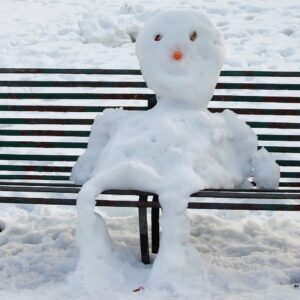
HEALTH ADVISORY: Exposure to Cold Temperatures Increases Risk for Serious or Life-Threatening Health Problems
With low temperatures expected to be in the single digits over the next several days and a winter storm watch for significant and blowing snow in effect Friday night into Saturday night, Spokane Regional Health District (SRHD) is issuing this health advisory. Exposure to cold temperatures can cause serious or life-threatening health problems. Infants and the elderly are particularly at risk, but anyone, including animals, can be affected.
"When the weather is extremely cold, and especially if there is blowing snow, try to stay indoors," said Dr. Bob Lutz, health officer for Spokane Regional Health District. “To avoid hypothermia and frostbite, make any trips outside as brief as possible, and remember that by preparing for winter emergencies, the risks of weather-related health problems can be reduced.”
Extreme cold presents a dangerous situation that can result in health emergencies in susceptible people, such as those without shelter or who are stranded, or who live in a home that is poorly insulated or without heat. City of Spokane offers a list of provider services and additional night warming centers on its site here.
Preparing for extreme cold
- Stock up on emergency supplies for communication, food, safety, heating and car. Check out these winter weather checklists from ready.gov
- Listen to the radio or television, or follow social media channels, for winter storm forecasts and other information.
- Have appropriate cold weather clothing available.
- Make sure fireplace functions properly.
- Fill your vehicle’s gas tank.
During periods of extreme cold
When residents must use space heaters and fireplaces to stay warm, the risk of household fires increases, as well as the risk of carbon monoxide poisoning. Use fireplaces, wood stoves, or other combustion heaters only if they are properly vented to the outside and never use a charcoal or gas grill indoors—the fumes are deadly.
Here are other tips to keep residents safe during extreme cold temperatures:
- If an individual must go outdoors, wear several layers of loose fitting, light weight, warm clothing rather than one layer of heavy clothing. Wear mittens rather than gloves. Wear a hat. Cover mouth with a scarf to protect lungs from extremely cold air.
- Watch for signs of frostbite and hypothermia
- Signs of frostbite include a white or grayish-yellow skin area, skin that feels unusually firm or waxy, or numbness.
- Signs of hypothermia include slurred speech, disorientation, uncontrollable shivering, stumbling, drowsiness and body temperature of 95 degrees Fahrenheit or less.
- If a resident becomes trapped outside, get out of the wind and stay dry. Build a lean-to or snow cave if nothing else is available. Do not eat snow; it will make you too cold.
- Do not drive unnecessarily.
For more local health-related emergency preparedness info visit the health district’s page. Become a fan of SRHD on Facebook to receive local safety and wellness tips or follow them at @spokanehealth.
###
